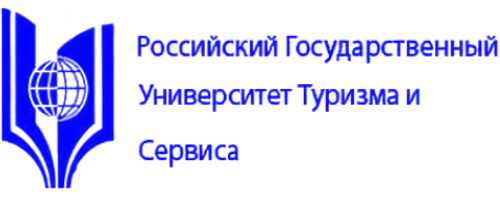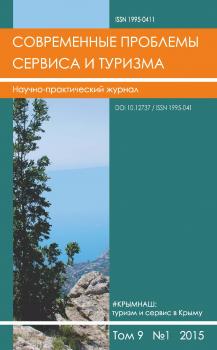The change in the trends in demand for tourism and excursion products, and needs of a modern tourist determines the importance of differentiating the tourism offer and developing the popular types of tourism. Crimea has significant tourist resources, which can and should be used to develop non-traditional types of tourism. The development of topographic tourism as a form of scientific knowledge and cultural identification will attract the category of tourists to the Crimea, the motivation of which is based on satisfaction of cognitive needs, the need for cultural involvement and involvement in the cultural environment. The main goal of the article is to study the prospects for the development of topographical tourism in Crimea and demonstrate cultural and cognitive possibilities, using a one-day tourist route. It was developed in accordance with the possibilities of the average tourist and traditional cognitive interests of tourists and excursionists. The objects included in the topographic route are accessible and interesting from the point of view of the cultural heritage of the Crimea. The route laying was preceded by a study related to the identification of the most popular tourist topographic interest objects. Also the article analyzes the research and cultural-cognitive features of topographic tourism in Crimea, explains how the topographic route affects tourist’s scientific knowledge and cultural identification. The main findings of the study are recommendations for the introduction of the developed topographic route and the topographic tourism development in Crimea along with traditional forms of tourism.
topographic tourism, scientific tourism, cultural identification, Crimea, toponyms, tourism, topographic route, a form of scientific knowledge
1. Avramenko Yu.S., Prilepskih E.O. Netradicionnye vidy turizma v Rossii // Kul'tura i obsche- stvo: istoriya i sovremennost': Mat. II Vseross. (s mezhdunar. uch.) nauch.-prakt. konf. Stavropol': OOO «Veteran», 2013. S. 274-276.
2. Arzymatov Zh.S. Osnovnye formy preemstvennosti v razvitii nauchnogo poznaniya // Vysshaya shkola. 2017. №5. S. 51-53.
3. Vozgrin V.E. Istoriya krymskih tatar. SPb.: Nestor-Istoriya, 2013. T. 1-4.
4. Gribova M.M. Nauchnoe poznanie, ego vzaimosvyaz' s drugimi formami poznaniya // Izvestiya Rossiyskogo gosudarstvennogo pedagogicheskogo universiteta im. A.I. Gercena. 2008. №58. S. 99- 103.
5. Erdavletov S.R., Mukatova D.M. Kul'turnoe nasledie kak predposylka razvitiya kul'turnogo tu- rizma // Turizm i rekreaciya: fundamental'nye i prikladnye issledovaniya: Trudy IX Mezhdu- nar. nauch.-prakt. konf. Kaluga: KGU im. K.E Ciolkovskogo, 2014. S. 28-33.
6. Karpenko S.A. Rekreacionnoe mikrorayonirovanie Kryma kak osnova dlya ocenki vozdeystviya aktivnyh vidov turizma na prirodnye kompleksy regiona // Uchenye zapiski Tavricheskogo na- cional'nogo universiteta imeni V.I Vernadskogo. Geografiya. Geologiya. 2013. T.26(65). №1. S. 68-76.
7. Kulibanova V.V., Teor T.R. Innovacionnye instrumenty brendinga territoriy: ponyatie, suschnost', osobennosti primeneniya // Nauchno-tehnicheskie vedomosti Sankt-Peterburgskogo gosu- darstvennogo politehnicheskogo universiteta. Ekonomicheskie nauki. 2016. №6(256). S. 122-129. DOI:https://doi.org/10.5862/JE.256.11.
8. Moshnyaga E.V. Koncept «kul'turnyy turizm» v sisteme konceptov mezhdunarodnogo turizma // Znanie. Ponimanie. Umenie. 2009. №3. S. 173-178.
9. Rudneva E.G. Filosofskie podhody k yazyku // Litera. 2015. №2. S. 71-90. DOI:https://doi.org/10.7256/2409- 8698.2015.2.15795.
10. Rybin V.A., Deniskin S.A. Fenomen i ponyatie informacii: opyt interpretacii na primere sistem prirody i kul'tury // Vestnik Permskogo universiteta. Filosofiya. Psihologiya. Sociologiya. 2017. №1. S. 5-13. DOI:https://doi.org/10.17072/2078-7898/2017-1-5-13.
11. Sevast'yanov A.V. Desyat' let na sluzhbe kraevedeniya: Rossiyskoe obschestvo po izucheniyu Kryma (1922-1932). K.; Simferopol': Centr pamyatnikovedeniya NAN Ukrainy i UTOPIK, 2010. Vyp. 13. 255 s.
12. Sidorova N.A. Formirovanie marketingovoy strategii kurortno-turistskogo kompleksa regi- ona // Vestnik Chuvashskogo universiteta. 2008. №3. S. 464-470.
13. Cherkashina L. Prekrasny vy, brega Tavridy [215 let so dnya rozhdeniya A.S. Pushkina] // Lazur'. 2014 №6. S. 4-5.
14. Cherkasova N.G. Vidy netradicionnogo turizma za rubezhom // Kul'tura i obschestvo: istoriya i sovremennost': Mat. II Vserosc. (s mezhdunar. uch.) nauch.-prakt. konf. Stavropol': OOO «Vete- ran», 2013. S. 320-321.
15. Shubovich M.M., Petrova Yu.I. Ekstremal'nyy turizm kak vid netradicionnogo semeynogo otdyha // Sotrudnichestvo: prepodavatel' - student v nauchno-issledovatel'skoy rabote: Mat. nauch.-prakt. konf. po special'nostyam «Social'naya rabota» i «Social'no-kul'turnyy servis i turizm». Ul'yanovsk: Ul'yanovskiy gos. un-t, 2010. S. 108-110.
16. Jobst K.S. Die Perle des Imperium: der russische Krim-Diskurs im Zarenreich. Konstanz, 2007. Pp. 251- 252.
17. Kolodziejczyk D. Divided Sovereignty in the Genghisid States as Exemplified by the Crimean Khanae:«Oriental Despotism» à rebours? // Acta Slavica Iaponica. 2012. Vol.32. Pp. 1-21.





